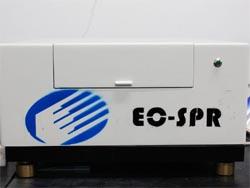
A research team led by Prof. NIU Li with the CAS Changchun Institute of Applied Chemistry has made a series of progress in its research into chemical sensor elements based on nano-structured composite materials and their analytical instrumentalization. Recently, the group received a Second Award of Science and Technology of Jilin Province.
A high-tech device integrating expertise from such academic fields as electronics, chemistry and materials science, the chemical sensor is capable of transferring physical and chemical qualities into electronic signals to be analyzed and processed by integrated instrument. It plays a unique role in basic research and finds applications in various sectors, ranging from environment protection, medicine, public security and industrial process control.
Experts predict that novel chemical sensors and its miniature and integration studies will be one of the key areas in scientific research over the next 5 to 10 years. The application of technologies for new nano-structured composite materials and their micro-fabrication and micro-chips will play a leading role in the development of such sensors.
Prof. Niu and colleagues have been conducting research in the field sine 2004. Focusing on nano-structured composite materials, they made a systematic study of their design, integration, performance and micro-structure. They also explore the chemical and electro-chemical approaches for preparing new nano-structure composite materials on the basis of conducing polymers, carbon nano-materials, metal nano-materials and ionic liquids. Their efforts have led to a number of new materials in the field.
These new materials exhibit new properties, such as high conductivity, high bio-compatibility, enhanced surface activity and electro-catalytic activity, and provide powerful support for the development of new chemical sensors.
On the basis of these studies, Prof. Niu and his team have been successful in preparing many kinds of chemical materials for sensors and related analytical and monitoring instruments by using nano-processing and assembly techniques, and solving many bottleneck issues in the studies of analytic sensors of complicated components.
Experts say their work makes prohibitive contributions not only to the scientific instrument sector in China but also to the integrated preparation of nano-structured composite materials, and the development of sensing chips.
Related News
Photos
More>>trade
market
finance
- CAS researchers receive TAN Jiazhen Awards for Life Sciences
- China's Think Tank Forecasts 8.3% GDP Growth in 2009
- Three Foreign Scientists Received 2008 CAS International Science and Technology
- 1:1,000,000 Geomorphologic Atlas of China to be Released
- Xu Guangxian Received China's 2008 State Top Scientific and Technological Awards





